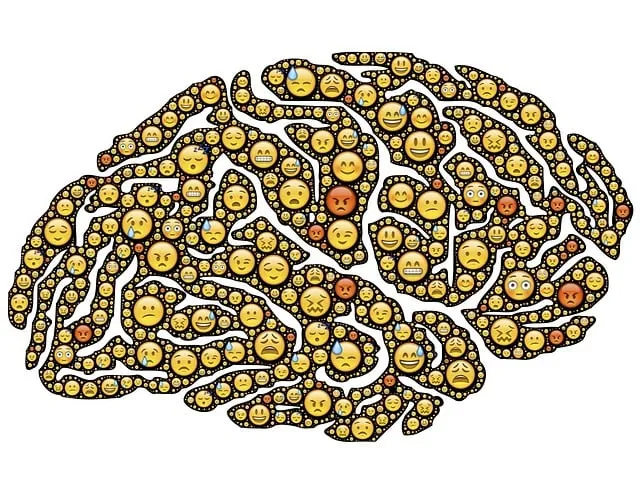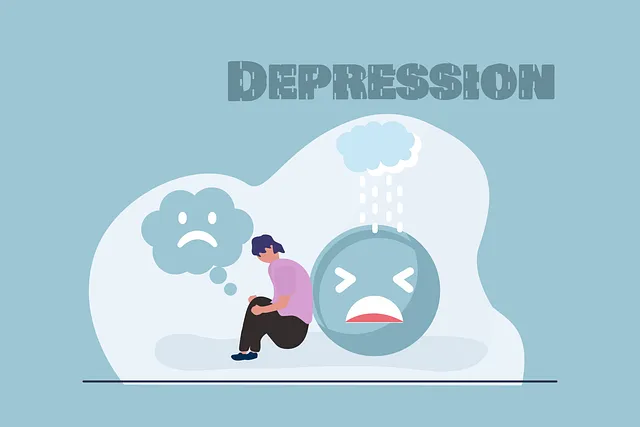Wheat Ridge Kaiser Permanente's behavioral health services emphasize Crisis Intervention Teams (CITs) as a vital mental health resource. Their comprehensive CIT training programs go beyond basic first aid, focusing on evidence-based techniques like active listening and de-escalation. Through realistic scenario simulations, mindfulness exercises, and self-care practices, trainees gain advanced crisis management skills while promoting holistic well-being and community resilience. The Wheat Ridge Kaiser Permanente behavioral health number offers these tailored programs, including stress management workshops, to empower individuals and organizations to effectively navigate crises and prevent burnout.
“Crisis intervention teams (CITs) play a pivotal role in managing mental health crises. This article explores the essential framework of CITs, focusing on the leadership and training provided by Wheat Ridge Kaiser Permanente Behavioral Health, a renowned program with a proven track record. We’ll delve into key components of effective crisis intervention training, strategies to prepare and support team members, and methods for measuring success. Understanding these programs is crucial in enhancing community mental health support.”
- Understanding Crisis Intervention Teams: A Necessary Framework
- The Role of Wheat Ridge Kaiser Permanente Behavioral Health
- Key Components of Effective Crisis Intervention Training Programs
- Strategies for Preparing and Supporting Team Members
- Measuring Success: Evaluating the Impact of Crisis Intervention Training
Understanding Crisis Intervention Teams: A Necessary Framework

Crisis Intervention Teams (CITs) are a crucial framework designed to address mental health and behavioral crises effectively. These teams, often comprising trained professionals, play a vital role in providing immediate support to individuals experiencing severe emotional distress or psychological trauma. By integrating CITs into healthcare systems, such as Wheat Ridge Kaiser Permanente behavioral health services, organizations prioritize the well-being of their patients and communities.
The concept behind CIT training programs is to empower individuals with the skills needed to recognize warning signs of crisis and intervene appropriately. This includes fostering Self-Esteem Improvement and facilitating Emotional Healing Processes through evidence-based techniques. Moreover, these programs often include Stress Management Workshops designed to equip participants with tools for personal resilience and effective crisis de-escalation strategies. Such initiatives ensure that individuals within the organization’s reach receive timely support, potentially reducing the impact of crises and promoting long-term mental well-being.
The Role of Wheat Ridge Kaiser Permanente Behavioral Health

Wheat Ridge Kaiser Permanente Behavioral Health plays a pivotal role in crisis intervention training programs, offering specialized expertise and resources for those seeking to make a positive impact. As a leading provider of mental health services, they equip individuals with the necessary tools to navigate challenging situations with empathy and effectiveness. Their comprehensive training goes beyond basic first aid; it delves into advanced strategies for managing crises, fostering compassion cultivation practices, and imparting Mind Over Matter principles.
The center’s dedicated team leverages their extensive knowledge to create immersive learning environments, ensuring trainees are well-prepared to handle a variety of crisis scenarios. By integrating mental health awareness into the fabric of these programs, Wheat Ridge Kaiser Permanente Behavioral Health not only trains individuals in crisis intervention but also promotes holistic well-being and resilience.
Key Components of Effective Crisis Intervention Training Programs

Effective crisis intervention team training programs are multifaceted, aiming to equip participants with a comprehensive skill set for handling crises. The core components include evidence-based techniques such as active listening, de-escalation strategies, and crisis assessment tools. Training should emphasize practical application through realistic scenario simulations, allowing teams to practice responding to various crisis scenarios like suicidal ideation, trauma, or acute mental health episodes.
Additionally, integrating social skills training enhances the program’s effectiveness. Teaching empathetic communication fosters stronger connections between team members and individuals in crisis. Self-care practices and stress management techniques are also vital, ensuring interventionists maintain their well-being while supporting others. These programs often incorporate mindfulness exercises, emotional regulation strategies, and regular debriefing sessions to prevent burnout and promote resilience among participants. The Wheat Ridge Kaiser Permanente behavioral health number serves as a key resource for accessing such training opportunities, enabling individuals and organizations to enhance their crisis intervention capabilities.
Strategies for Preparing and Supporting Team Members

Preparing crisis intervention team members involves a multifaceted approach that goes beyond traditional training. Organizations like Wheat Ridge Kaiser Permanente behavioral health number prioritize self-care routine development for better mental health, ensuring team members have robust coping strategies to manage high-stress situations. This includes integrating compassion cultivation practices and stress reduction methods into the fabric of their programs. By fostering a culture of emotional resilience, these initiatives enable staff to effectively support individuals in crisis without compromising their own well-being.
Supportive mechanisms are equally crucial. Regular debriefing sessions, peer mentoring, and access to counseling services help team members process challenging experiences and prevent burnout. Equipping them with not just technical skills but also emotional coping tools is key to maintaining a high level of performance and compassion over time.
Measuring Success: Evaluating the Impact of Crisis Intervention Training

Evaluating the success of crisis intervention team training is essential to understanding its impact on healthcare organizations and their employees. Measuring success goes beyond simply certifying that participants have completed the program; it involves assessing the practical application of skills and the overall well-being of the workforce, particularly in relation to burnout prevention strategies for healthcare providers. By examining how training translates into improved patient care and reduced instances of depression and stress among staff, organizations like Wheat Ridge Kaiser Permanente behavioral health can gauge the effectiveness of their programs.
Regular assessments and feedback mechanisms are crucial tools for gauging progress. This includes collecting data on employee satisfaction, perceived stress levels, and incident reports both before and after training sessions. Tracking these metrics over time allows for a comprehensive view of whether crisis intervention strategies are leading to positive changes within the organization. Moreover, analyzing staff retention rates, productivity, and patient outcomes can provide valuable insights into the long-term benefits of such programs, ultimately informing decisions on resource allocation and future training initiatives, including Stress Management Workshops Organization offerings.
Crisis intervention team (CIT) training programs, as highlighted by Wheat Ridge Kaiser Permanente behavioral health, are vital tools for equipping healthcare professionals with the skills to navigate and de-escalate crises effectively. By understanding the key components of these programs, implementing strategies to prepare and support team members, and measuring success through evaluation, organizations like Wheat Ridge Kaiser Permanente can enhance their CIT capabilities. This comprehensive approach ensures that crisis interventions become a game-changer in providing safe, compassionate, and timely care for those in need.






